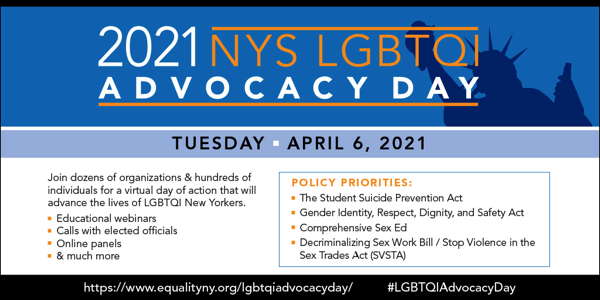March 3, 2021
Since 2001, sex workers, allies, and advocates have commemorated International Sex Worker Rights Day on March 3 in an effort to raise awareness of the human rights abuses faced by sex workers worldwide. On this day, citing empirical evidence, researchers and scientists from around the world called on President Biden and Vice President Harris to support the decriminalization of sex work as part of their broader efforts toward legal justice reform. In an open letter, 250+ scholars and scientists called upon the Biden administration and all U.S. governors and legislators to reevaluate U.S. policies on sex work in their efforts toward legal justice reform.
Scientific evidence shows that decriminalizing consensual adult sex work reduces individual and social harms and increases safety, especially for marginalized populations. Four scientists kicked off the new campaign, Scientists for Sex Worker Rights (SFSWR), calling for fact-based policy-making, the decriminalization of consensual adult sex work, and the repeal of policies such as SESTA/FOSTA. The four organizers have Ph.D.s in sociology and hold academic posts at universities across the U.S. They are some of the nation's leading scholars of research on sexual commerce, and they have published numerous books and peer-reviewed articles on various aspects of the field.
“We decided to launch this campaign because, for too long, policies regarding sex work have been largely evidence-free, and we saw an urgent need to intervene in the debate by re-linking scientific research with public policy. And 250 researchers agreed and signed on to our letter,” said Ronald Weitzer, Ph.D., George Washington University, one of the four organizers of the Scientists for Sex Worker Rights campaign.
The majority of individuals involved in the sex trades are consenting adults. “The data clearly shows that criminalizing consensual adult sexual services causes severe harms, which fall mainly on the most marginalized groups — women, people of color, transgender and non-binary workers, workers with disabilities, and economically marginalized workers, and does not prevent or minimize violence or abuse ostensibly identified with human trafficking,” said Angela Jones, Ph.D., Farmingdale State College, State University of New York.
“The evidence now shows that the war on prostitution, even if intended to protect people, is backfiring. Study after study documents the negative impact criminalizing sex workers, their clients, and those who support them has had on the most marginalized communities. We can change that with science-based policies. Science should determine every single policy in this country, whether local, state or federal, intended to affect or protect anyone selling sex, whether by choice, circumstance or coercion,” noted Barb Brents, Ph.D., University of Nevada, Las Vegas.
Signatories represent some of the most published scholars and respected researchers in the field. They come from the U.S. and across the globe. Their research unequivocally shows that decriminalization has enormous benefits for public health and the safety of workers. Where sex work has been decriminalized, such as in New Zealand, there has been no increase in the prevalence of prostitution or trafficking since 2003, neither in the number of those providing commercial sex nor in those purchasing it; fewer reports of street-based sex workers, as many had moved indoors; increased reporting to the police of violence against sex workers; improved relations between police and sex workers; enhanced economic stability and labor conditions; better health outcomes for workers; and improved overall public health.
The letter applauds the administration’s “public commitment to science-driven policy” and implores the president, vice president, their administration, and congressional leaders to take immediate, specific actions such as “Support and advocate for Congressional bill S.3165 SESTA/FOSTA Examination of Secondary Effects for Sex Workers Study Act. … Given that a similar House bill, H.R.5448 SAFE SEX Workers Study Act, has been buried in committee since 12/18/2019, we are calling for serious action on the Senate study bill” because policies such as SESTA/FOSTA has had deleterious transnational effects on sex workers. The four organizers hope that governors and state legislators as well will heed the science on similar state-level bills. “President Biden and his administration have a historic opportunity to create a commission comprised of leading social scientists, NGOs, and grass-roots sex worker-led organizations to partner with Congressional leaders and advance new science-informed policies that empower and support all individuals engaged in sex work,” said Kate Korgan, Ph.D., University of Nevada, Las Vegas.
Campaign Organizers
Dr. Barbara (Barb) G. Brents has spent more than 25 years using a political economy lens to study politics, sex, and gender in market culture. She is considered one of the world’s leading academic experts on the sex industry and Nevada’s legal brothels. Her work applies research on sexual commerce to understand the politics of sexuality, the intersections of culture and economics; sexual markets and consumption; and the emotional and bodily labor of selling sex.
As a professor in the sociology department at the University of Nevada, Las Vegas, since 1988, she has served as the department’s Graduate Coordinator for several years. She works with faculty in the Sexuality and Gender Studies Department, the Boyd School of Law, and various other departments in the College of Liberal Arts.
Brents’ research and teaching interests include political sociology, gender and sexuality, urban sociology, and public sociology. She teaches undergraduate classes on “Principles of Sociology” (online on WebCampus), “Sociology of Gender,” “Sex and Social Arrangements,” and graduate-level seminars, in “Political Sociology” and ”The Sociology of Sexuality.”
Barb Brents holds a Ph.D. in sociology from the University of Missouri-Columbia and a bachelor’s degree in journalism from the Missouri Journalism School. Barb Brents focuses on the sexual economy: the politics, culture, organization, markets, consumption and labor practices, surrounding various forms of sexual commerce. With a broader theoretical interest in the intersections of culture and economics, her publications, blogs and editorials include: the politics of sexuality, consumption, tourism and sexuality; and the emotional and bodily labor of selling sex, on topics, including Nevada’s legal brothel industry, the pornography industry and kink organizations.
Past research has also explored intersections of politics, culture, economics, and gender, looking at topics, such as the politics of terrorism and violence, business and social policies, and social sustainability in Las Vegas.
Most recently, Barb Brents has been the author and/or co-author of books and publications, including “Are Men Who Pay for Sex Sexist? Comparing Client Attitudes on Gender Role Equality, in Different Prostitution Markets,” in Men and Masculinities, “Violence and Legalized Brothel Prostitution in Nevada,” in the Journal of Interpersonal Violence, “The Mainstreaming of the Sex Industry: Economic Inclusion and Social Ambivalence,” in the Journal of Law & Society, and “EXPOsing Men’s Gender-Role Attitudes, as Porn Superfans,” in Sociological Forum.
She is involved in a number of collaborative projects with colleagues at UNLV, in the United Kingdom, Europe, Canada and Australia, exploring sexual commerce and consumption, and the politics and regulation of sexuality.
Her research has been published in scholarly peer-reviewed journals, including the American Sociological Review, Men and Masculinities, Sexualities, Sociological Perspectives, the Journal of Interpersonal Violence, Sexuality Research and Social Policy, the Journal of Contemporary Ethnography, and Social Science and Medicine.
She has, furthermore, worked with undergraduate and graduate students, on causes as diverse as sex worker rights, peace and justice, civil liberties, the environment, and a variety of women’s issues.
Dr. Angela Jones is associate professor of sociology at Farmingdale State College, State University of New York. Jones's research interests include African American political thought and protest, race, gender, sexuality, sex work, technology studies, feminist theory, and queer methodologies and theory. Jones is the author of Camming: Money, Power, and Pleasure in the Sex Industry (NYU Press, 2020) and African American Civil Rights: Early Activism and the Niagara Movement (Praeger, 2011). She is a co-editor of the three-volume After Marriage Equality book series (Routledge, 2018). Jones has also edited two other anthologies: The Modern African American Political Thought Reader: From David Walker to Barack Obama (Routledge, 2012) and A Critical Inquiry into Queer Utopias (Palgrave, 2013). She is also the author of numerous scholarly articles, which have been published in peer-reviewed journals.
Dr. Kate Hausbeck Korgan earned her Sociology Ph.D. in 1997 at the State University of New York at Buffalo, was tenured and promoted in the UNLV Department of Sociology in 2002, and served as associate dean of the graduate college from 2006 until 2007 when she was appointed senior associate dean. In 2013, Dr. Korgan was asked to serve as interim dean when the graduate college was moved to a stand-alone college reporting to the executive vice president & provost, after which she became dean of the graduate college in 2019.
A champion of diversity and equity, excellence and opportunity, and the powerful impact of innovative and interdisciplinary research, scholarship and creative activity, Dr. Korgan is deeply committed to creative problem-solving, collaboration, and servant leadership. Her mission is to provide outstanding service and support to students and faculty, and promote transformative educational experiences. Kate exemplifies these values in her graduate leadership through a sustained commitment to student-centered and data-driven decision making; encouraging participatory governance; building strong infrastructure to support graduate faculty; stimulating strategic growth and overall program excellence; implementing electronic/online systems to increase efficacy, efficiency, access to data, streamlined communications, and student success throughout the lifecycle; establishing a Dean’s Leadership Council and multiple advisory boards to ensure strong ties to the community; leading efforts to advocate for excellence in graduate education regionally and nationally; cultivating a strong graduate community of faculty, staff, and students on campus; founding the The Graduate Academy to provide comprehensive leadership, professional, and career development throughout the student lifecycle; and increasing financial resources to better support graduate student success.
As a scholar, Kate is a sociologist and social theorist with diverse methodological skills and expertise in the study of sex, gender, culture and sexual commerce. Together with Dr. Barb Brents and Dr. Crystal Jackson, Dr. Korgan co-authored The State of Sex: Tourism, Sex, and Sin in the New American Heartland (Routledge, 2010), an examination of America's only system of legalized prostitution: the Nevada brothels. With Dr. Alex Nelson and Antoinette Izzo, M.A., Dr. Korgan is currently studying business strategies and entrepreneurial practices of female online escorts in the United States, and the nexus between neoliberalism and sexualized culture. The research team’s website is EroticEntrepreneurs.com. Dr. Korgan has won multiple teaching awards and loves teaching undergraduate and graduate sociology classes and mentoring her students.
Dr. Ronald Weitzer received his Ph.D. in sociology from the University of California, Berkeley in 1985 and has been at George Washington University since 1988. He is a criminologist, and much of his research has investigated police-minority relations in the United States and in other nations (including Northern Ireland and South Africa). He is also an expert on the sex industry, with particular expertise on American policies and law enforcement on prostitution and sex trafficking. A recently completed project involved extensive field research on legal prostitution systems in Europe. For additional information, go to Ronald Weitzer’s Wikipedia page.
Continue to follow and help amplify the Scientists for Sex Worker Rights Campaign for Evidence-Based Policy (@SFSWR1) on Twitter!

Courtesy of Scientists for Sex Worker Rights.
DSW Newsletter #24 (March 2021)
Heroes of the Month: Scientists for Sex Worker Rights

Rhode Island Introduces Legislation Aimed at Protecting Sex Workers

Decriminalization News From Oregon and Louisiana

Mark Your Calendars

 Heroes of the Month: Scientists for...
Heroes of the Month: Scientists for...
 Rhode Island Introduces Legislation Aimed at...
Rhode Island Introduces Legislation Aimed at...
 Decriminalization News From Oregon and Louisiana
Decriminalization News From Oregon and Louisiana
 Mark Your Calendars
Mark Your Calendars
